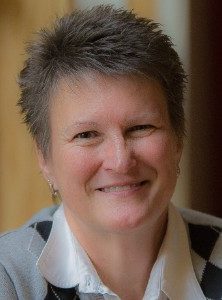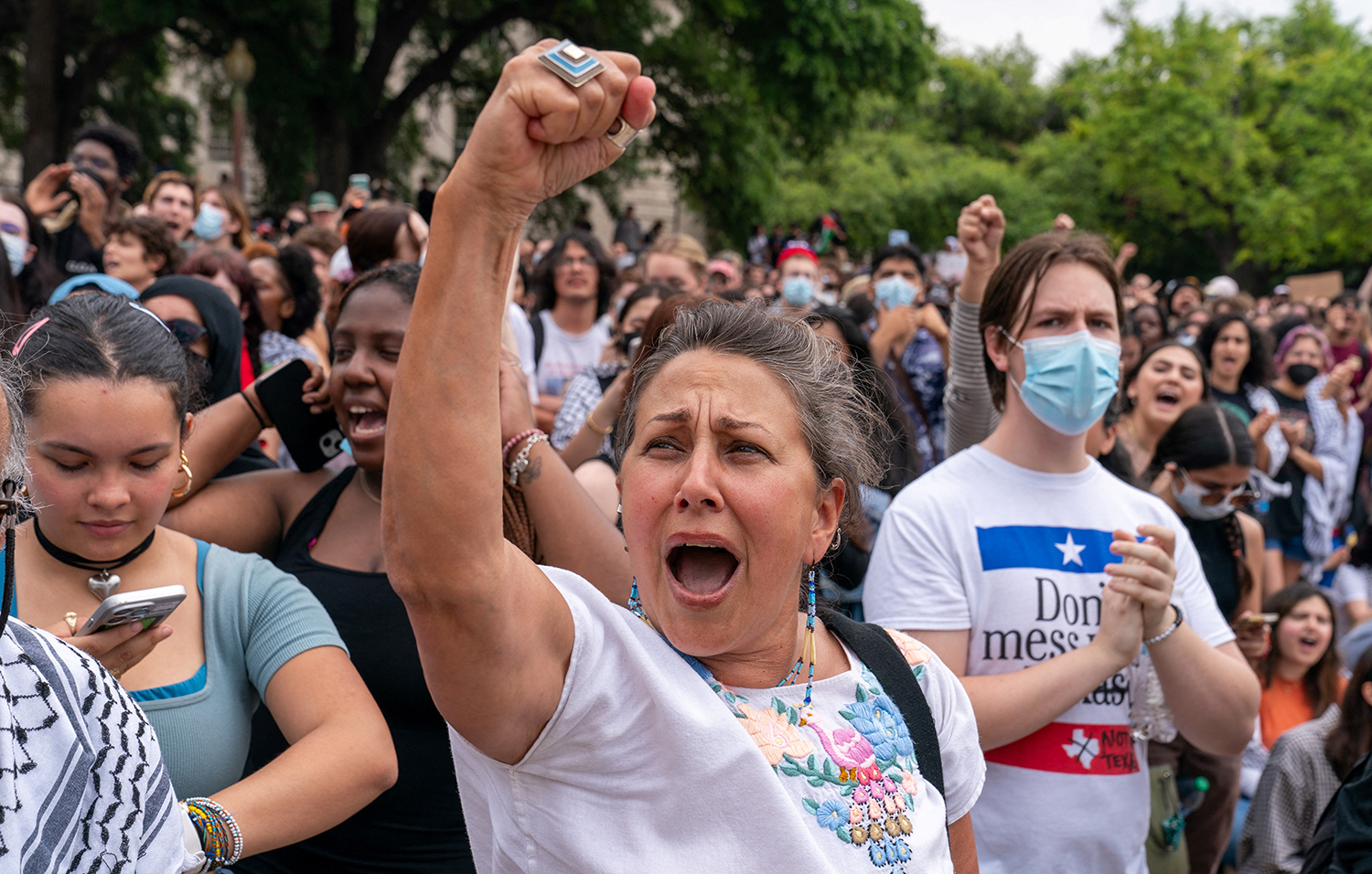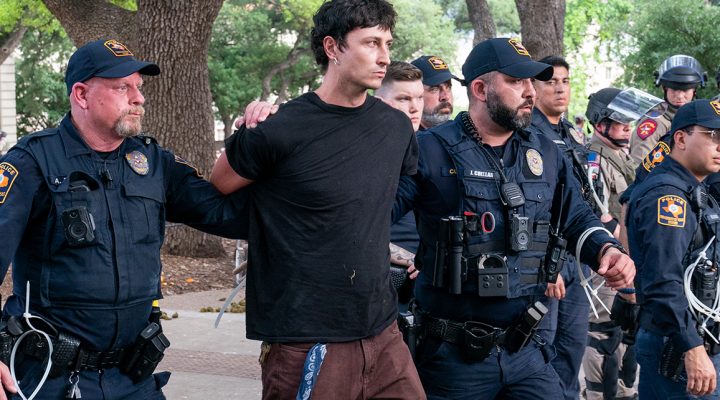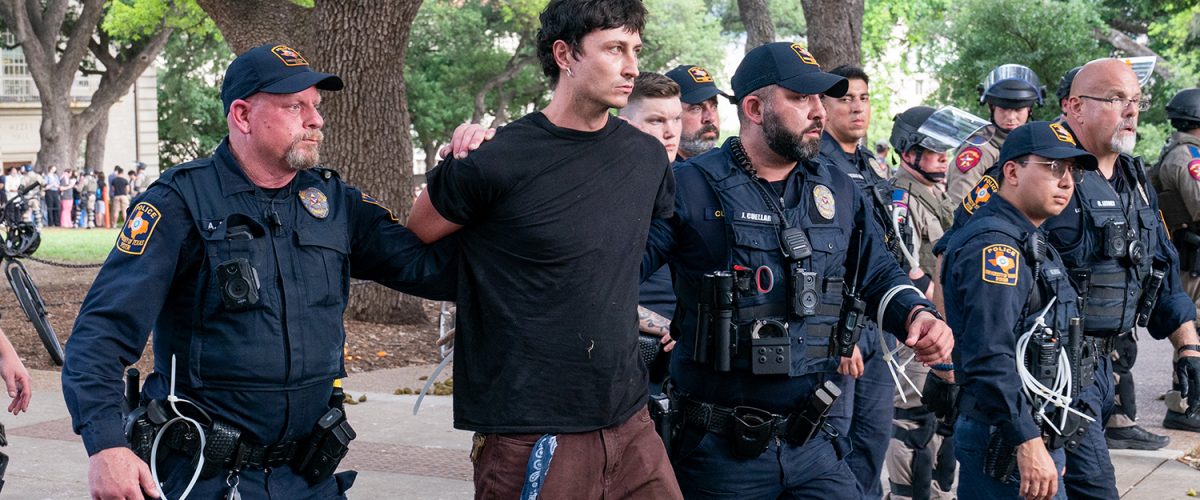We haven’t seen protests on college campuses like this since the 1960s. As a professor, I’m thrilled to see a deep level of engagement by students on an important issue. I’m also horrified at the responses of many institutions to call police on students and to break up encampments.

Susan Shaw
We have an incredible teachable moment. Instead, most institutions are caving to outside pressures, financial concerns and fears of perceptions to shut down dialogue and dissent rather than use it to encourage critical thinking, difficult conversations, thoughtful analysis, conflict mediation, peacemaking skills and all the other things colleges should teach and society desperately needs in this moment.
The Palestinian conflict is so complex I doubt most of us have any real grasp on it. That said, I don’t think it’s all that hard to say we condemn both the kidnapping, raping and killing of Israeli citizens and the bombing, shooting and killing of Palestinians.
“The Palestinian conflict is so complex I doubt most of us have any real grasp on it.”
Campus protests offer colleges a powerful opportunity to help students hold complex and often competing ideas in mind at the same time, to develop empathy for all people who are suffering and to commit themselves to just, peaceful and purposeful lives that make a difference in the world.
The whole point of social justice protests is to bring about change that improves societies and people’s lives. Despite all the recent political movement against diversity, equity and inclusion programs on campuses in red states, the idea of protest aligns well with colleges’ missions to develop people who are informed and involved citizens.
Colleges should welcome social justice protests and use them as an opportunity to assess their own institutional entanglements with unjust processes, policies, benefactors, collaborators and institutions. That is often what students ask in their protests. In this case, many protesters are asking their schools to assess their financial entanglements with Israel as a way to bring pressure on Israel to act more justly toward Palestine.

Demonstrators against the war in Gaza rally in support of Palestinians on the campus of the University of Texas in Austin, Texas, on April 25, 2024. College campuses across the US braced for fresh protests by pro-Palestinian students, extending a week of increasingly confrontational standoffs with police, mass arrests and accusations of anti-Semitism. (Photo by SUZANNE CORDEIRO/AFP via Getty Images)
Again, this provides a teachable moment with all the questions it raises that college administrators and faculty members could help students grapple with inside and outside the classroom. Is divestment effective in bringing about social change? Is divestment from Israeli companies inherently antisemitic? Are there more effective things colleges could do to promote justice in the Middle East?
Of course, there’s also the incredible opportunity to help students develop deeper understandings of the Palestinian conflict itself. Most students probably know very little about the history of the region or U.S. involvement in it. They don’t understand the history of antisemitism and how easy it can be to slip from legitimate critique of Israel as a political state into stereotypes of Jews or questioning the nation’s right to exist. Similarly, they may have little experience confronting anti-Arab and anti-Muslim bias and discrimination and can too often characterize Palestinians as terrorists or threats to Israel.
Certainly misinformation, bias, discrimination and even hate have shown themselves in these protests. Those are not reasons to shut protests down. They are all the more reason to engage students in learning, to help students hear one another, to facilitate deeper analysis with empathy for all who suffer and to imagine solutions that allow the safety and dignity of all people.
“As teachers, our responsibility is to engage with the disruptions.”
I’m not bothered by the disruptions protests cause. Protests should be disruptive. That’s part of the point — to bring attention to things that are being overlooked or ignored. For me, as long as protesters remain nonviolent, there’s no reason to call the police, have them removed or break up encampments. As teachers, our responsibility is to engage with the disruptions.
Let’s say protesters have taken over an administrator’s office. OK. Go sit with them and talk. We found a way to work through a pandemic. We can work through a sit-in. Alter working conditions for people in the office while leaders talk with students. Let them work from home or hold meetings in a coffee shop. Let them talk with protesters to learn more about what they want.
Or let’s say chanting is disrupting classes. Turn those classes into moments to make teaching relevant. Is it a political science class? No brainer. What if it’s an engineering class? Put aside the day’s topic. Talk about the conflict at the core of the protest. What role does engineering play in war — in the building of weapons, in rebuilding cities destroyed by bombs, in defining paths for evacuation, in designing refugee camps? An agriculture class — talk about destruction of crops and addressing famine caused by war and dislocation. A literature class — talk about the literature of protest. A research methods class — there’s a built-in research project on your doorstep. And so on.
Any discipline can make itself relevant to the conflict. I know we academics tend to think everything we have to say is absolutely important and necessary, but the truth is sometimes teaching and learning are deeper when we leave aside the syllabus and pursue those teachable moments that on occasion present themselves. Students want to talk about what’s going on in the world around them. We can bring that energy and excitement into our classrooms and help students make the connections from theories, formulas, methods and data to real world problems with life and death consequences.
“Too many college presidents seem to have forgotten their role as teachers.”
I’m not saying the protests are not without problems. But for those of us who are educators, those problems are an entry point for teaching, learning, empathizing and growing. Too many college presidents seem to have forgotten their role as teachers and have been mostly concerned with exerting authority, minimizing PR disasters and restoring order.
Deep learning, the kind of learning that changes minds and hearts, however, is messy. Student protesters have given colleges a rare opportunity to embrace the messiness of transformational teaching and learning. Most are failing miserably.
What about the church? Are churches taking advantage of this opportunity to plumb the depths of this conflict to learn about our complicity in it and the possibilities for our engagement with peacemaking, change and justice? In particular, are churches challenging misguided theological beliefs about the Middle East that often affect American policies toward Palestine and Israel?
The church, too, has a teachable moment right now. Is the church also blowing it?
Susan M. Shaw is professor of women, gender and sexuality studies at Oregon State University in Corvallis, Ore. She also is an ordained Baptist minister and holds master’s and doctoral degrees from Southern Baptist Theological Seminary. Her most recent book is Surviving God: A New Vision of God through the Eyes of Sexual Abuse Survivors, co-authored with Grace Ji-Sun Kim.
Related articles:
What is going on at America’s elite universities? | Opinion by Mark Wingfield
Christian Colleges caught in ‘woke’ culture wars
From the Protestant Reformation to Columbia University, some thoughts on protests | Opinion by Patrick Wilson


